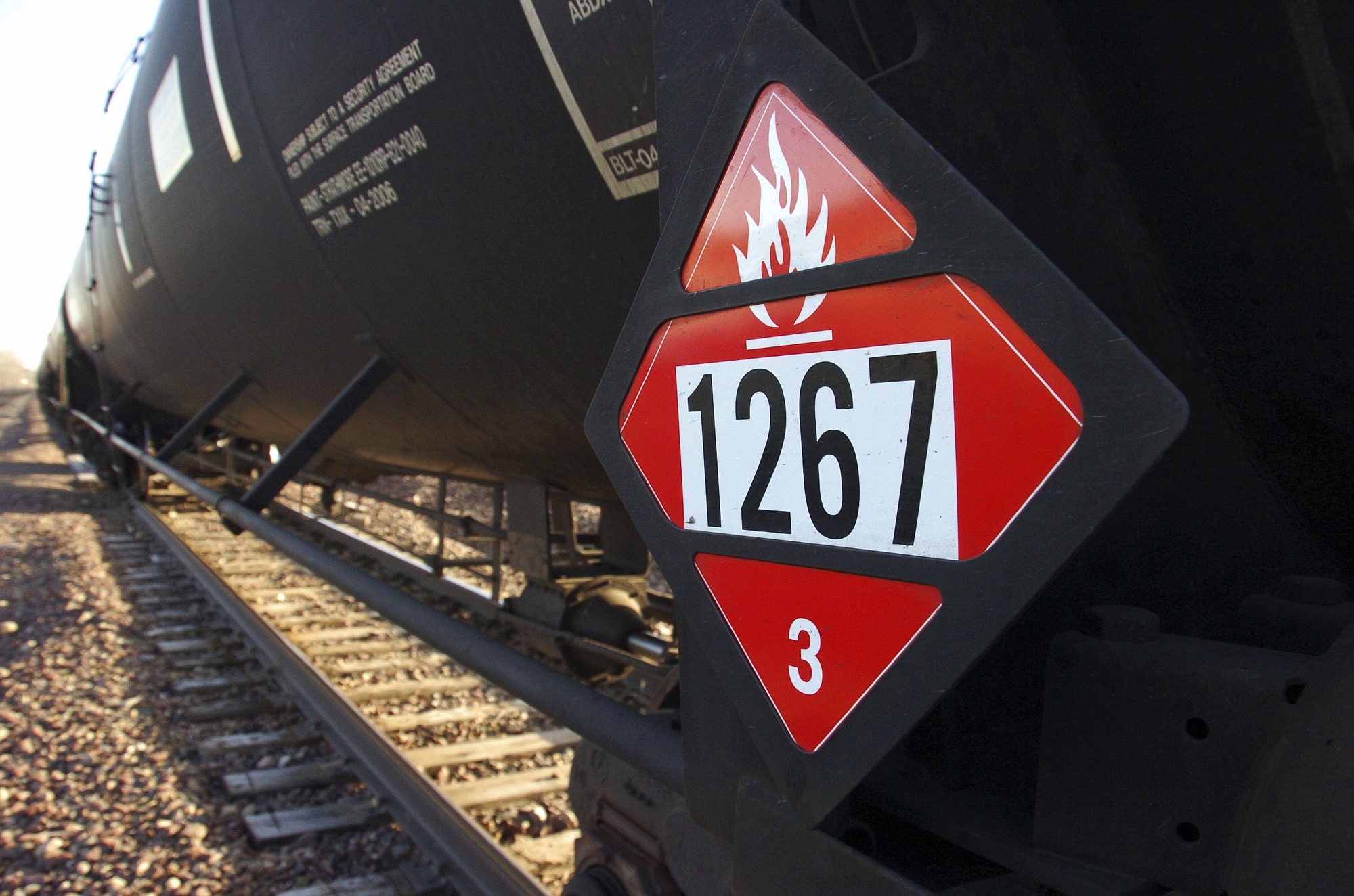WASHINGTON — A legal victory in California this week over crude oil operations could have a spillover effect, emboldening critics of crude-by-rail shipments to press their concerns in other jurisdictions.
Earthjustice, a San Francisco-based environmental group, won its battle to halt crude oil train operations in the state as InterState Oil Co., a Sacramento fuel distributor, agreed to stop unloading train shipments of crude oil next month at the former McClellan Air Force Base.
Sacramento County’s top air quality official said his agency mistakenly skirted the state’s environmental rules by issuing a permit for the operation.
Earthjustice contended the Sacramento air quality district should not have granted InterState a permit to transfer crude oil from trains to tanker trucks bound for Bay Area oil refineries without a full environmental impact review.
The court reversal in California could bolster efforts by environmental groups to slow or stop crude-by-rail projects elsewhere, particularly in Washington state. A proposed terminal in Vancouver would transfer oil from trains to tanker ships that could supply California refineries.
Patti Goldman, a managing attorney in the Seattle office of Earthjustice, said the decision sounded “a wake-up call” for permitting authorities to consider community input.
“We have been seeing local authorities blindly approve crude-by-rail projects without being open with the public and without considering the full effects,” she said.
The McClellan operation is relatively small compared with crude oil train terminals proposed elsewhere in California. One, in southwestern Kern County in the southern Central Valley, will be able to receive one 100-car train full of crude oil each day. The McClellan facility was permitted to unload a similar amount once every two weeks.
The Kern facility, which could begin operating this month, was already zoned for transfer operations, and required no new environmental reviews or public comments.
In September, the Kern County Board of Supervisors approved a separate facility at a Bakersfield refinery that could receive two trains a day. Earthjustice sued the board earlier this month, contending that Kern’s environmental review was inadequate.
Environmental groups lost a legal fight in the Bay Area city of Richmond, where a terminal operated by pipeline company Kinder Morgan, the largest midstream – the shipping and storage of oil – energy company, unloads crude oil from trains to trucks that take it to local refineries. A judge rejected the lawsuit in September, ruling that the six-month statute of limitations had expired.
A McClatchy story in March revealed the existence of the McClellan operation to the surprise of local officials. State emergency officials and fire departments have said they don’t feel prepared to handle a major explosion or spill from a derailment.
Some of the crude unloaded at McClellan may have originated in North Dakota’s Bakken region. That type of oil, extracted through hydraulic fracturing, has been under increased scrutiny since a July 2013 derailment killed 47 people in Lac-Megantic, Quebec.
That accident and a series of fiery derailments since then have prompted the rail industry and its federal regulators to take steps to improve track conditions and operating practices. A stronger construction standard for tank cars used to ship flammable liquids is being finalized by the U.S. Department of Transportation.
The California Energy Commission projects that the state could receive as much as a quarter of its petroleum supply by rail in the next two years.
Earlier this month, BNSF Railway and Union Pacific sued California over a state law that requires railroads to develop oil spill prevention and response plans. The railroads argue that only the federal government has the power to regulate them.



